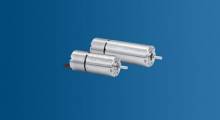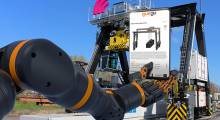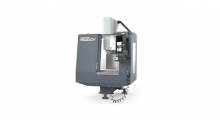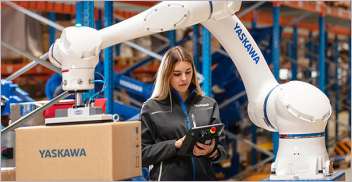I will admit: The last thing the materials handling world needs is another acronym. Isn’t it enough that a newcomer to the industry has to figure out what is an ERP, WMS, TMS, LMS, OMS, DOM, SCP, SCE, SCM, ADC, AC/DC (OK - I threw that one in there to see if you’re awake!), MHI, APICS, CSCMP, ISM and WERC – and that’s just scratching the surface.
Still, I’d like to suggest that anyone running a warehouse with automated materials handling systems needs to add another acronym to their vocabulary: CMMS. It stands for computerized maintenance management system, and from where I sit, CMMS is going to be a must have software system for warehouses and distribution centers transitioning from conventional to highly-automated facilities.
I may be proven wrong - and, hey, it wouldn’t be the first time - but I firmly believe that in the future, solution providers will compete on their maintenance and maintenance software capabilities along with the functionality of their solutions. That includes their CMMS solutions.
At Modern, we’ve put our money where our mouth is. At Promat last year, we launched a new publication focused on MRO – which stands for maintenance, repair and operations and is another acronym you need to know – because we believe MRO is becoming more important to our industry than ever.
Last week, Jeff Hedges, president of material handling at OPEX, invited me to co-present with him on the topic at Modex. Maintenance is of particular interest to Hedges because OPEX has determined that its full-bore support of new customers is a competitive advantage. We may be wrong, but Jeff and I think that our little presentation was a first for Modex and Promat..
Why maintenance? The short answer is that as the fulfillment needs of the industry become more demanding, systems have become more reliant on software, sensors, PLCs and other technologies that can’t be addressed by yesterday’s technician who may have been good with a screw driver and a wrench.
And that’s where CMMS systems come into play. Just as a WMS brings discipline to warehouse management, CMMS brings discipline to the various aspects of maintenance - everything from spare parts management to PM and warranty management. CMMS has long been part of the vocabulary in other asset-intensive industries where uptime is paramount and downtime can ruin the bottom line, like manufacturing and commercial aviation.
Last week, we saw CMMS overtly promoted by Dematic and Intelligrated, both of whom said they may contemplate offering their CMMS applications as a stand-alone product, and as part of the presentation at Knapp, which was touting its heads-up display capabilities which allows a technician to communicate in real time with Knapp while performing maintenance. In the last year, I’ve had similar conversations with Daifuku and Swisslog and talked to companies as diverse as rail provider Canadian National and Accu-Sport, a distributor of shooting sport supplies, and Target, on why maintenance is important to their operations.
Any one who had the chance to walk the Modex show floor last week can’t help but be impressed by the amazing strides our industry is making when it comes to meeting the needs of our customers. At the same time, if we can’t keep those solutions up and running to meet customer service levels, it’s all for naught. CMMS and maintenance solutions from the likes of OPEX, Dematic, Intelligrated, Knapp and others are going to be more important than ever to making good on the promises that we – and our end users – make to our customers. Its time to make the acronym part of your vocabulary.
About the Author
Follow Robotics 24/7 on Linkedin
About the Author
Follow Robotics 24/7 on Linkedin
Article topics
Email Sign Up















